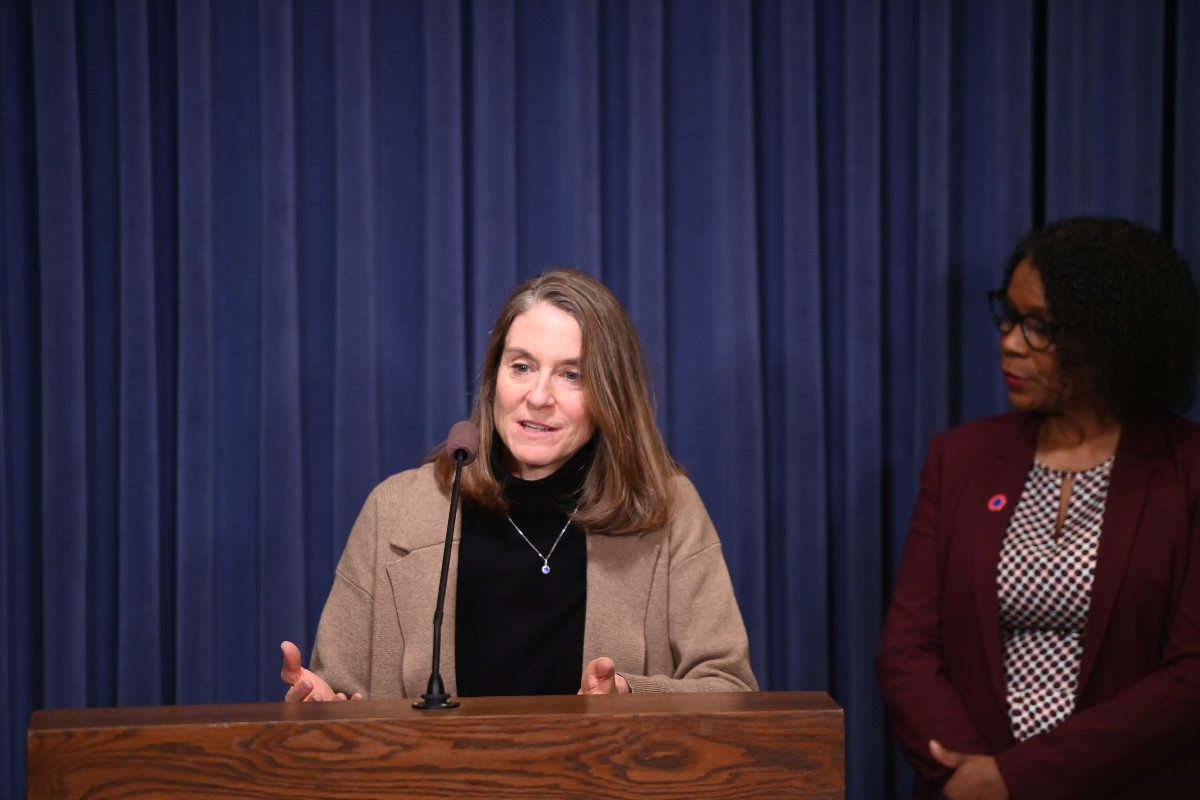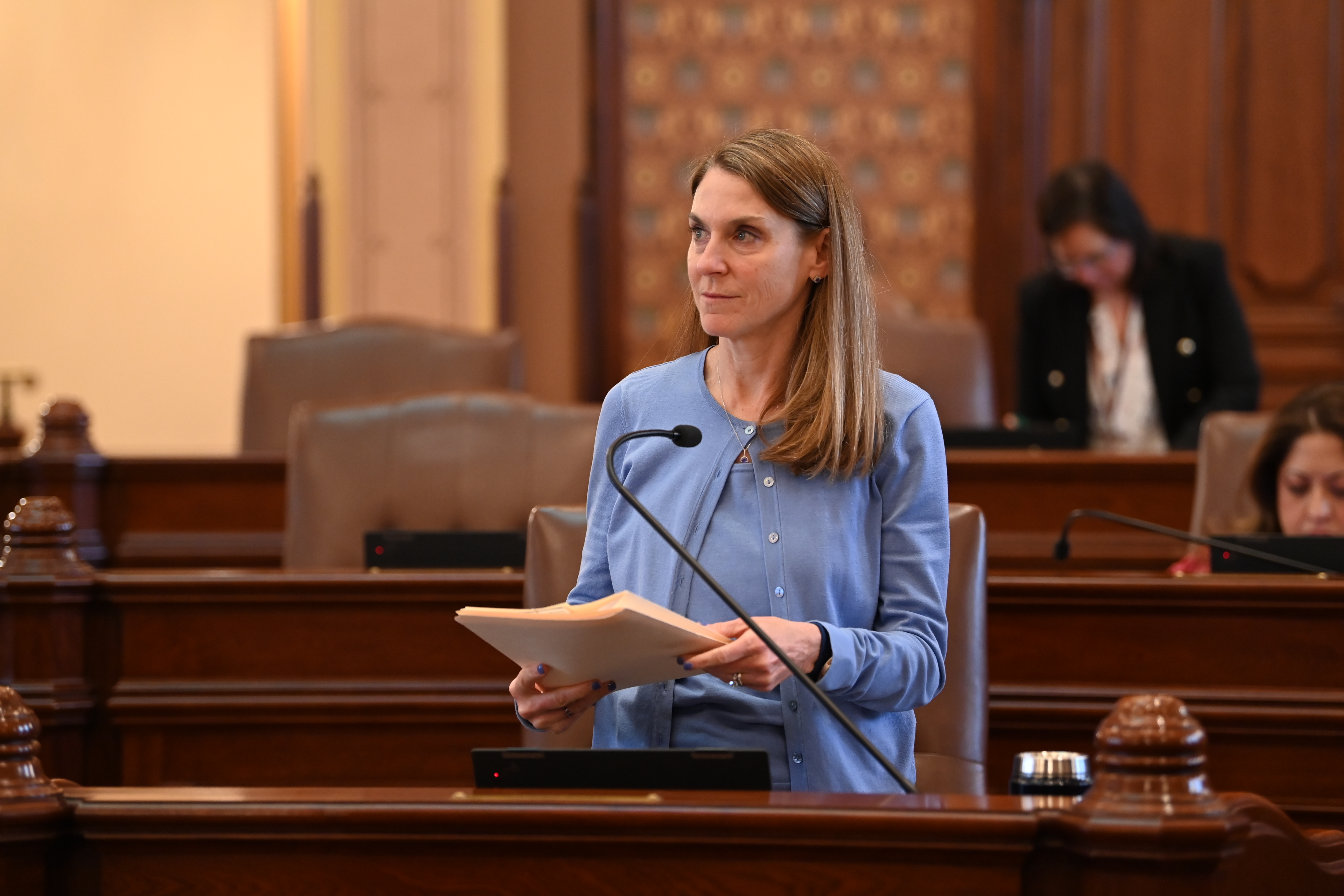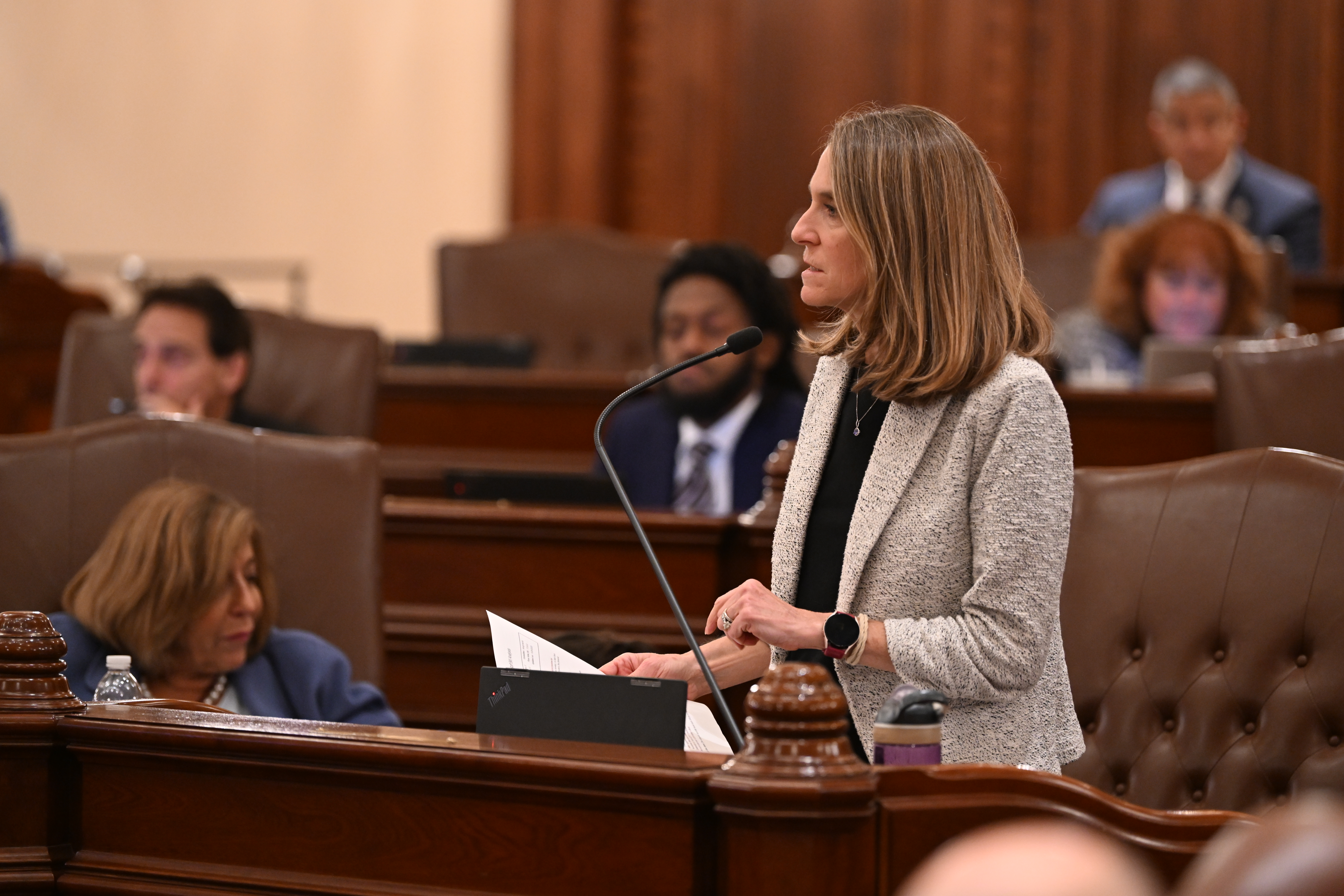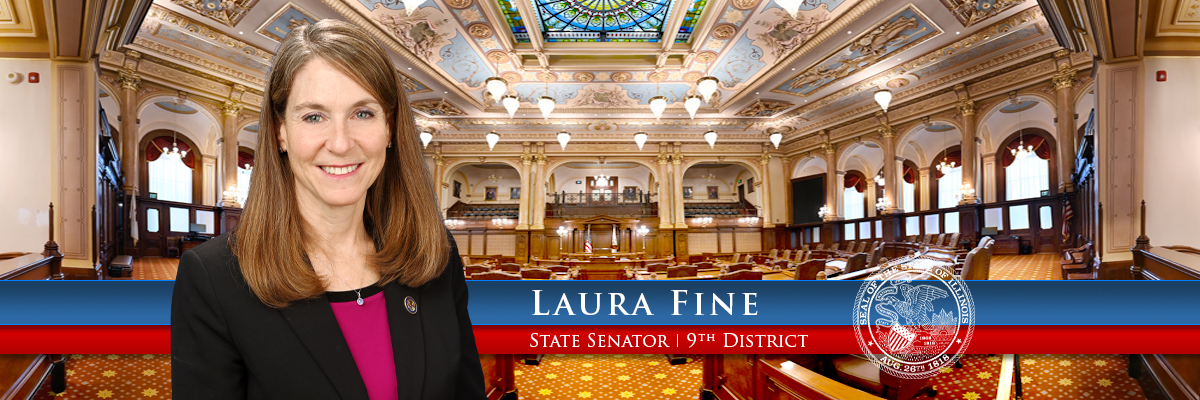- Details
- Category: Press Releases
 SPRINGFIELD – After the governor’s budget proposal, State Senator Laura Fine (D-Glenview) released the following statement:
SPRINGFIELD – After the governor’s budget proposal, State Senator Laura Fine (D-Glenview) released the following statement:
“The Trump Administration has targeted Illinois time and again, threatening to withhold essential funding for services our communities need. Whether this is funding for public health grants, energy projects or health care – every corner of our lives is under attack.
“Today it became even more clear that Illinois won’t back down. We are prioritizing opportunities for our youth, ensuring working-class families aren’t struggling to make ends meet, and investing into the future of our communities so businesses and neighbors can thrive.
Read more: Fine releases statement following FY27 budget proposal
- Details
- Category: Press Releases
 SPRINGFIELD, IL – State Senator Laura Fine called a press conference on Wednesday to outline crucial legislation that would protect families and curb ICE intimidation by preventing newly hired ICE agents from serving as law enforcement officers in Illinois.
SPRINGFIELD, IL – State Senator Laura Fine called a press conference on Wednesday to outline crucial legislation that would protect families and curb ICE intimidation by preventing newly hired ICE agents from serving as law enforcement officers in Illinois.
“Police officers occupy positions of public trust. Given widespread concern over ICE’s violent tactics, allowing current ICE agents to police local communities undermines that trust and should be prohibited,” said Fine (D-Glenview). “My district is one of many communities across the state that has repeatedly voiced concerns about increased ICE activity in our neighborhoods, schools, shopping centers and public spaces, and it’s time we take action against threats to public safety.”
The Prohibited Hiring of Federal Immigration Officers Act would prohibit police departments in Illinois from hiring anyone who was employed by ICE as a federal immigration officer between Jan. 20, 2025 and Jan. 20, 2029 as a law enforcement officer.
Read more: Fine highlights plan to restrict hiring of ICE agents
- Details
- Category: Press Releases

“Access to critical information like changes to health care plans can make a significant difference for families’ financial planning,” said Fine (D-Glenview). “This new law ensures patients are informed of state laws that could affect their benefits.”
Currently, health insurance providers must give enrollees and potential enrollees a list of in-network providers and a description of the terms of their plan’s coverage each year.
Read more: Fine law expands health care insurance transparency on Jan. 1
- Details
- Category: Press Releases

“Working women often lack proper maternity resources, leaving them unsupported upon returning to work. This law empowers moms to balance their professional responsibilities while caring for their infants,” said Fine (D-Glenview).
Under the new law, employees’ time for pumping breastmilk has to be paid and employees cannot be required to use their own paid leave during these breaks.
Read more: Fine law strengthens workplace support for nursing mothers starting Jan. 1
More Articles …
Page 1 of 77







